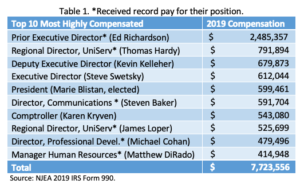I’m a sucker for word derivations. Did you know that the word “anger” is derived from an old Norse word meaning “grief?” What is grief? Mike Gecan, as we embark on the afternoon session of the Leadership Track, tells the packed room (I’m sitting on the floor typing this) that the word implies loss, either of of something that was once there but no longer exists or of something that one values but never existed, something you know you can’t get. Or your kid can’t get, given the current set of circumstances.
This particular conversation startedwhen Mike asked the group to define “leadership,” beyond the previous consensus of someone with followers who can continue to produce more followers. (Without followers there is no possibility of power.) People chimed in with a number of postive words: humility, good listening skills, compassion, commitment.
But there is no leadership without loss, which leads to grief, which leads to anger.
For example, drive through the South Side of Chicago, says Mike. You can’t find safety from gun violence and neither can your kid. This is loss. This is grief. This is anger. Closer to home, drive through parts of Trenton or Paterson or Lakewood or Atlantic City. You can’t get an adequate education for your children through current traditional schools. Maybe you didn’t get that for yourself either. This is loss, grief, anger.
And without anger there is no possibility for change.
What is the opposite of anger? Apathy.
*****************************************************************
Leadership requires not only memory but also vision. You can’t be all nostalgia and abstraction. Some people have memories of good schools and can envision a structure that improves upon that original. Other people have no memory of a good school; if they don’t know that a good school feels like, they can’t access that memory and move on to vision. Therefore, take those people to a good school so that they have a point of reference. Let them understand, “my kid could be in a school like this someday.” Only then will they have both the memory to draw on and the vision to build up.
********************************************************************
Are we all aware as parents that our children do what we do, not what we say, asks a parent? You all know that, right?
******************************************************************



